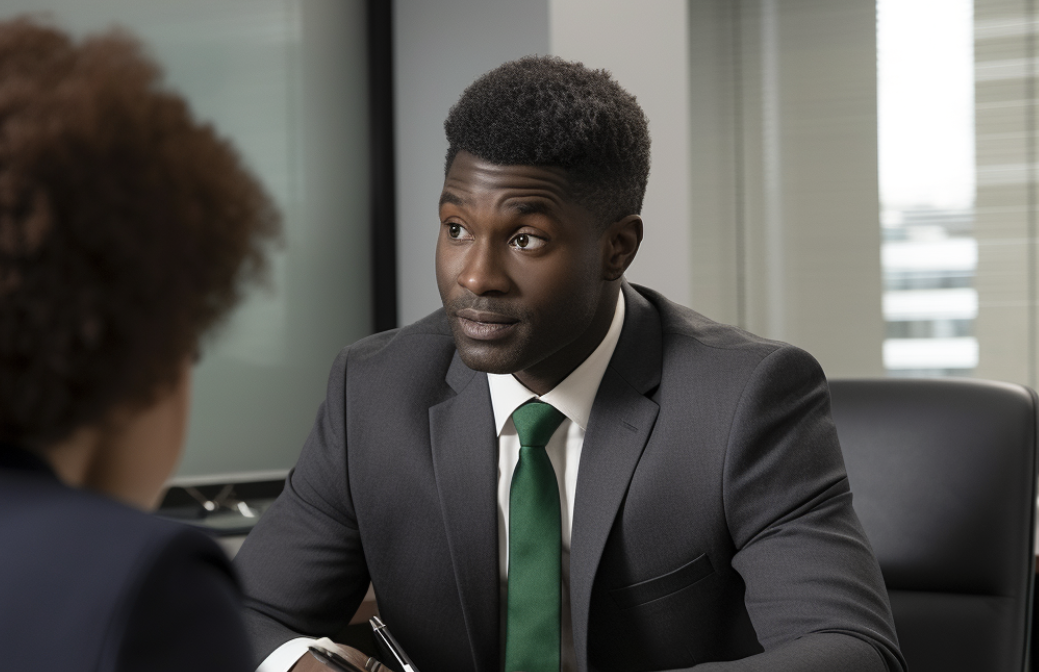Table of Contents
Trial preparation is an indispensable component of effectively litigating a personal injury lawsuit. A seasoned trial lawyer must invest time and effort into gathering evidence, interviewing witnesses, and much more. The attorney must also work to prepare the case for a potential appeal, which requires a thorough understanding of the defendants’ arguments and positions in the case.
Voldz Law knows what is at stake in a New York trial for personal injury. The injury victim depends on having skilled legal counsel who is ready to advocate for them from the opening through the closing arguments. If you are a New York-based attorney who is seeking to refer your personal injury clients to a trusted law firm, look no further than Voldz Law for referral.


Things To Keep In Mind Before a Trial
By the time the trial date arrives, a personal injury attorney should be prepared to not only argue the client’s case but also respond to and refute the defendant’s arguments and defenses. Here are some general things you must bear in mind while preparing for a trial:
- Review case files and evidence: Review everything! That means evidence, notes, pleadings, motions, affidavits, and other documents and records in the case file to ensure you have a working knowledge of the facts. In doing so, you may need to create additional exhibits or conduct further investigation to strengthen the client’s case and prepare counter-arguments.
- Know the applicable PJI charges and violation codes: The judge must charge pattern jury instructions (PJI) so the jurors understand how to assess the evidence presented. In car accident cases, for instance, PJI charges will incorporate violations of the New York State Vehicle and Traffic Law (VTL). It is vital to be familiar with these instructions as you prepare your case for trial.
- Prepare all witnesses: You must identify and interview key witnesses as early in the personal injury lawsuit process as possible, and continue communicating with these individuals up until the court date. It may also be necessary to conduct a mock trial, especially for unusual or complex cases. This portion includes speaking and preparing with all expert witnesses.
- Develop a case strategy: The most cogent trial strategies incorporate and account for all evidence, including that which is presented by the defendant. Extensive knowledge of the NY evidence rules, the Rules of Civil Procedure, New York tort common law, and courtroom procedures is critical.
- Prepare and Draft necessary Motions in Limine: Motions in Limine ask the trial judge to make a decision or issue a ruling on a specific request, while briefs provide important case summaries and legal authority for the judge. You need to make sure to resolve any outstanding matters, to the extent possible, before jury selection.
- Organize evidence: Exhibits must be tagged, indexed, and organized, with the proper number of copies, so you won’t have to waste precious time in court searching for evidence. Along with the list of exhibits, you should have supporting case law and legal precedents in case questions are raised as to admissibility, relevancy, or other issues.
- Select the jury: Voir dire and jury selection are arguably two areas for which many lawyers are inadequately prepared, and yet they could dramatically affect the outcome of the trial. You should develop a strategy to handle these matters along with any potential challenges to the selection process.
- Trial logistics: As a trial attorney, you should inform the client and witnesses about the date, time, and location (including the courtroom number) of the trial as soon as this information is available, and make sure transportation is not going to be a problem. All personal injury trial lawyers should ideally visit the courtroom for themselves (if they have never argued there) to familiarize themselves with the surroundings.
- Contingency plans: The lawyer’s trial preparation checklist must account for unexpected events like a key witness not showing up or the discovery of new evidence immediately before the trial. Ideally, surprises should be kept to a minimum, but you should be ready to present alternative arguments or motions if necessary.
What Are Initial Disclosures In a Lawsuit?
The Rules of Civil Procedure require that parties disclose certain information and documents before being asked to do so through formal discovery requests. The purpose of this requirement is to help narrow the issues for discovery and expedite the case. The items that must be disclosed fall into four categories: 1) witnesses; 2) documents; 3) damages calculations (using the personal injury damages calculator); and 4) insurance agreements.
A party may object to exhibits that do not abide by these and other rules. It is imperative that a personal injury attorney be ready to not only defend the admissibility of their own exhibits, but to also object to any of the defendant’s exhibits that violate these rules.
List of Standard Objections In a Personal Injury Lawsuit
A party has the right to make objections to opposing counsel questions. Some of these depend on whether the lawyer’s question is asked during a deposition or at the trial itself.
During Deposition
Depositions are formal Q&A sessions that take place under oath before a trial. The answers can serve as evidence at trial. This is common in motor vehicle accident cases when insurance companies depose accident victims. Although the questions may cover many topics, some are not permitted. For example, the client’s lawyer may object if a question:
- Is asked for the sole purpose of trying to embarrass the client
- Violates the client’s privacy rights
- Relates to an attorney-client privileged communication
At Trial
A party can raise multiple objections during a trial. These are intended to keep irrelevant and unreliable evidence out of court and make sure the parties follow the rules of civil procedure. Just a few examples include:
Hearsay: A question that attempts to have the witness speak about something he or she does not personally know about is one that falls under ‘hearsay’. Simply put, hearsay is an out-of-court statement made by someone other than the witness themself. Importantly, a prepared attorney must have a working knowledge of all exceptions to the hearsay rule that may apply to the personal injury case at trial.
Ambiguous or misleading: Courts exclude these types of questions because the witness may not understand what the attorney is actually asking; they may inadvertently say something that is protected (for instance, by attorney-client privilege), which may have been the asking attorney’s ulterior motive.
Calls for speculation: Asking something that requires a witness to guess or speculate is inappropriate. If a witness does not have knowledge about a topic, there is really no value in speculating what the answer might be. Such guessing provides no solid evidence for the jury to consider.
Witness not competent to give an opinion: This generally involves attempting to ask a lay witness for an expert opinion. Some lawyers may employ this tactic in medical malpractice cases. Expert witnesses are required to explain complex medical topics related to the standard of care and the quality of treatment, and lay persons are simply not qualified to answer them.
Irrelevant: New York trial lawyers cannot ask questions about just anything they want. Questions pertaining to irrelevant matters and/or designed to embarrass the witness are a waste of the court’s time. In a car accident case, for instance, an attorney might ask a witness or the victim about how much money they make. This almost certainly has no relevance to the lawsuit.
Badgering: Badgering the witness often happens in cross-examination when opposing counsel is trying to undermine a witness. It involves asking hostile, argumentative, or repetitive questions. Lawyers sometimes do this to upset the witness, embarrass them before the jury, and thereby, discredit their testimony.
Trial attorneys should only make objections sparingly and when there is a good reason to do so. Using objections to trip up the witness or interrupt the opposing counsel’s train of thought will only annoy the judge and make it less likely that they will rule correctly on a valid objection. Moreover, the lawyer may strategically allow the witness to answer a question in spite of a potential objection as the witness’s response might potentially harm their own case more than the question itself.
How To Prepare For a Personal Injury Trial In New York
While getting ready for a personal injury trial, you should try to keep your focus on the following:
- The client’s central narrative: Jurors can easily get lost in the weeds, so the attorney must focus on the main reason why their client should win.
- The order of witnesses: Knowing who will testify, and when, is critical to spelling out the narrative, making the facts make sense, and establishing the elements of a personal injury case.
- The order of evidence: As with witnesses, the order of evidence matters to the case. It helps to track the elements of a personal injury case – duty of care, breach, causation, and damages – and make the most of the strongest, most compelling evidence first.
- The issues to discuss during voir dire/jury selection: Personal injury trial lawyers generally want a sympathetic jury whose members can appreciate the plight of their clients, so the questions asked during voir dire are critical to selecting the right jurors (to the extent possible).
- The opening argument: An opening argument sets the tone, summarizes the plaintiff’s case, and gives jurors a preview of what is to come. It must be persuasive enough to keep the jury focused on the plaintiff’s narrative.
- The closing argument: The closing argument is the other bookend of the entire case and reminds the jury, before they go to deliberate, what it is that the personal injury attorney has established during the trial. A strong closing argument will stay in the jurors’ minds as they make their decision.
- Any additional reliefs or omissions: As the trial progresses, the client’s personal injury lawyer may request other reliefs or make arguments that were not originally considered. Having an adaptive attorney, who is ready to modify the case strategy as circumstances dictate, is essential to success.
- The elements of the court’s judgment: The personal injury lawyer should work to craft the desired terms of the judgment throughout the trial, and develop the trial exhibit list and arguments with these terms in mind.
Your Must-Haves In a Trial Checklist
Every personal injury trial attorney must have certain items ready before the trial starts:
- All pleadings: These are the legal documents that all parties have filed in the case.
- List of witnesses: The names and contact information of all lay and expert witnesses, plus a brief summary of each of their testimonies.
- List of exhibits: The list identifies all the evidence that the lawyer may present in court, such as documents, photos, and videos, plus potential objections to trial exhibits.
- List of applicable PJI charges and violation codes: The PJI and associated violation codes (statutes) will prove vital towards the end of the trial.
- Exhibit admission checklist: This is designed to help the attorney keep track of which exhibits have been admitted into evidence and which have not.
- Outlines for opening and closing arguments: An experienced trial attorney will be able to use bullet points to direct attention to the case’s central narrative during the opening and closing arguments.
- Proposed judgment: The lawyer can draft the decision that, hopefully, the judge will hand down. The primary objective of this is not to direct the judge but to focus the case on what the attorney hopes to accomplish in the trial.
What Are Some Visual Aids I Could Use In a Personal Injury Trial?
Visual aids not only break down the case into more easily digestible pieces for the jury, but they also help keep certain points on the jurors’ minds throughout the trial. Some examples include:
- A flowchart or diagram illustrating the sequence of events that led to the accident
- Photos and videos of the accident location, injuries, and property damage
- A medical progress timeline that spells out the expected course of the plaintiff’s recovery and associated needs
How Do I Keep Track of All Exhibits?
Personal injury cases can involve massive numbers of exhibits. An experienced and tactical New York trial lawyer will limit the exhibits to only the most convincing ones, rather than risk distracting the jury with irrelevant and weak exhibits. Some possible ways to keep up with the exhibits include:
- An exhibit chart, with separate charts if there are multiple parties and/or color-coded exhibits
- Using digital tools for tracking exhibits, wherever possible
- Reviewing the charts regularly to ensure that all exhibits are accounted for
How Do I Prepare My Clients and Witnesses For a Trial?
Clients: The client should dress professionally and be prepared to answer all of their lawyer’s questions. By the date of trial, the client should not be surprised by the questions asked or topics raised. Additionally, they should be ready for tough cross-examination from the defendant’s attorney.
As a trial attorney, it is important to learn how to manage the client: remind them to stay calm and focused on the facts, to not interrupt anyone asking questions (especially the judge), and to avoid being rude or making inappropriate facial expressions during the trial.
Witnesses: Witnesses are expected to follow generally the same rules above regarding courtroom decorum. Additionally, they should remember to answer questions truthfully and completely since they will be under oath. Lastly, the witnesses must avoid providing irrelevant or speculative details and should not answer leading questions. They should stop talking immediately upon any objection from either side’s counsel.
What To Do If Your Client Has a Disability
Courts must provide reasonable accommodations for anyone who has a disability. This may include special assistance, free of charge. The personal injury attorney will brief the client on how the disability would be accommodated and what to do on the day of trial.
How Do I Take Care of Technology Issues During a Trial?
Ideally, you should visit the courtroom before the trial date to determine the available technology resources. You must have answers to questions like: Where are the power sources located? Or is there a working screen for a PowerPoint or digital presentation? Knowing how to effectively use technology in the courtroom is the responsibility of the skilled personal injury lawyer. You should also have backup plans (e.g. printed copies) in case of unforeseen circumstances. Lastly, you should disclose to the court ahead of time any plans to use visual aids or other demonstrative evidence.
How Do I Plan For Contingencies?
A personal injury attorney should have an ongoing contingency plan to handle various problems that could arise during the trial or trial preparation. The plan should consist of three categories:
- The potential issue: For instance, at the last minute, the courtroom projector might fail, rendering a digital presentation useless.
- How to mitigate the issue: The lawyer should know whom to contact at the courthouse who can quickly assist with the problem.
- How to fix the issue: As a last resort, the attorney needs to have printed copies of the presentation ready to hand out.


Personal Injury Trial Prep: Additional Tips
At Voldz Law, we are meticulous and thorough in our planning, allowing us to turn around the fates of several personal injury clients who were offered insultingly low compensation amounts for their injuries and suffering. Here are some extra steps we take to prepare for trial:
- Prepare the case strategy thoroughly: Do not leave anything to chance or to figure out during the trial. Minimize surprises to the extent possible and have alternative strategies ready.
- Set realistic expectations with the client: Explain approximately how much money the client can reasonably expect to walk away with. Make sure the client understands the attorney’s contingency fee arrangement as well.
- Prepare your expert and lay witnesses thoroughly: All witnesses must be prepared with several rounds of careful Q&A. If they do not understand something, they should ask you before the trial so everyone is on the same page.
- Anticipate opposing arguments: Examining the pleadings and motions carefully, as well as the evidence, will help you anticipate and respond to the opposing counsel’s arguments and defenses.
- Be professional and respectful: Throughout the trial, everyone on the plaintiff’s side should be prudent and respectful, even in the face of intense opposition that the defendant might bring. Emotions can run high, but trial is the time to keep them in check.
How Much Does a Lawyer Cost For a Trial?
The New York Rules of Professional Conduct stipulate strict requirements for referral fees. In general, a “pure” referral fee is not allowed. There must be an agreement from the referring attorney to either perform services or assume joint responsibility for the representation. If you are a New York trial lawyer who wants to refer your personal injury clients to our firm, and you have questions about fee sharing, we are happy to discuss the rules.

Our Referral Network
Have More Questions? Speak To An Experienced Trial Attorney For Referral Opportunities
Founding partner Gennady Voldz of Voldz Law takes a personal, hands-on approach to every client’s case. Knowing that the well-being of each personal injury client rests in his hands, Gennady:
- Invests extensive care and time in investigating, researching, and preparing for cases
- Brings to the table considerable experience representing victims of automobile accidents, premises liability accidents, medical malpractice, and nursing home abuse and neglect
- Has secured several multi-million dollar results in personal injury trials, earning the trust of some of the city’s best personal injury firms
Is your client ready to seek compensation for their injury? Give Voldz Law a call today to learn how we can help.

